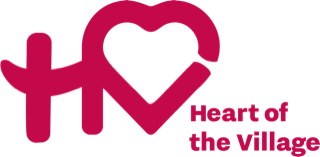On November 10, the Heart of the Village and the Mill Valley Community Center held a community gathering to discuss last weekend’s teen party that ended in chaos and confusion.
THANK YOU to all who attended!
For those who missed it—and for us all—here’s the quick recap and key takeaways.
Let’s continue the conversation!
December 5th, 6-7:30 PM we’ll meet at the MV Community center and brainstorm more solutions.
Huge gratitude to Tam High Principal, Dr. JC Farr, and local educators who helped us understand what happened, the dynamics at play, and how we can take action as a community.
- Aaron Pribble, Tam High Street Law & Psychology Teacher
- Nathan Bernstein, Tam High Dean of Students and Baseball Coach
- Jonathan Hirsch, Redwood High Teacher, Tobacco Use Prevention
- Matthew LemMon, Tam Football Coach & Social Studies Teacher
Key Takeaways
Panel weighed in with a combo of dismay, “not again” and “not surprised.”
They reminded us there are no “bad’ or “good” kids – there are mistakes, diffusion of responsibility, and bad situations/decisions.
Just as in culture at large, especially post-covid, kids are struggling to respect other humans, and we’ve all developed more unhealthy habits (not just the kids.)
Fewer social-emotional interactions and skills, so kids are more likely to blow off steam in unhealthy ways
Increased flaunting of authority, rules, law enforcement
Decrease in parental boundaries and follow-through
Screen time and social media use have exploded, along with FOMO, “Reality-TV” culture, and warped perception about what’s ok, what other kids are actually doing.
Saturday night was the convergence of multiple factors:
Mob mentality: kids often have to make decisions on the fly about how they’re going to behave. Easiest path is to go along with groupthink.
Alcohol and drugs: It’s even harder for kids to make good decisions when they’re in the mix. And at home, how is use and abuse normalized, even if unconsciously? How often do our kids see us opening a bottle of wine to unwind, or overdrinking?
Privilege and whiteness: The kids who disrespected the police that night didn’t fear any real consequences. How would it have played out differently with kids of color, some throwing beer cans at police? Would it have ended peacefully?
We expect more from our kids and we KNOW they can do better. We all make mistakes – how can we help repair and prevent?
Some Solutions
AT HOME:
Communicate our expectations with our kids – ideally before bad habits settle in. Ongoing family values convos about:
Parties, substance use, have a plan BEFORE they’re in a situation so they don’t just go along with whatever other kids are doing.
Respecting our community, neighbors, the police who are keeping us safe
Repair – when we make a mistake or hurt someone, how can we make it right? How can we learn from our mistakes?
Rethink our “kids are kids – they’re going to do this stuff anyway” attitude.
Having clear set family boundaries around what’s okay and what’s not MATTERS.
If kids see parents being permissive or blaming other kids or adults, it’s a missed opportunity for everyone to take responsibility and learn.
Model better behavior for our kids:
Moderate screen use
Talk about feelings/challenges
Moderate substance use—excessive use normalizes it for them
Respect others in the community, authority
BUILD TRUST with law enforcement. Organize more opportunities to get to know our local police, SROs, etc.
CREATE OPPORTUNITIES for kids to gather safely and contribute to the community:
Basketball and tennis courts?
Skate park?
Volunteer events? Service projects?
Internships/jobs?
Let’s brainstorm ideas!
RESOURCES:
Loud shoutout to all the organizations who hosted info tables at the event. Checkout their websites for more resources!
In addition to our speakers and info tables, The Spahr Center and RxSafe Marin distributed kits of Narcan/naloxone to attendees, and trained almost half of attendees in its use.
Other local/teen resources:
Please join us December 5 at the Community Center to continue the conversation!
And share out this email — because it really does take a village.
Together we can create a community where everyone is safe, thriving, and welcome.


